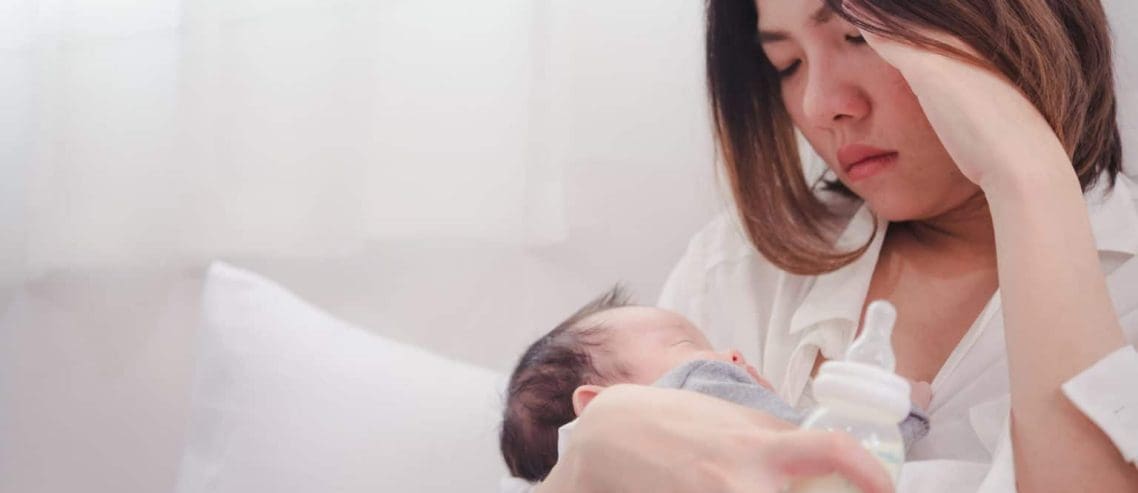A Closer Look at Postpartum Depression
The birth of a child, a wondrous event marked by joy and new possibilities, evokes a sense of hope and happiness. As mothers welcome their little bundle of joy into the world, their lives undergo a transformation filled with profound emotions, tenderness, and an overwhelming sense of love. For an alarming number of women worldwide, however, an unfortunate struggle persists: postpartum depression.
In this article, we delve into the depths of postpartum depression, exploring its multifaceted nature, its far-reaching consequences, and the urgent need to raise awareness. Furthermore, we seek to empower individuals to challenge the prevailing stigma associated with postpartum depression and rally behind those in their quest for healing and support.
Understanding Postpartum Depression
Postpartum depression (PPD), a moderate to severe form depression that affects women after childbirth, is an all-encompassing mental health condition that upends the lives of countless mothers and their families. Behind closed doors, some mothers grapple with overwhelming sadness, anxiety, and a profound sense of guilt. The weight of societal expectations, coupled with the persistent stigma surrounding postpartum depression, often exacerbates the pain experienced by those in its grip.
Postpartum Depression Statistics
- PPD affects between 10% to 20% of new mothers worldwide and is not limited to any specific socioeconomic or ethnic group
- The disorder can surface anytime within the first year after childbirth, although it typically begins within the first three months
- Infants of mothers with untreated PPD can experience delays in cognitive, social, and emotional development
- 50% of women with postpartum depression do not receive appropriate treatment
Signs and Symptoms of Postpartum Depression
The signs and symptoms of postpartum depression (PPD) can manifest with varying intensity and specificity, unique to each individual. These symptoms may last for a few weeks or months or linger for a year or more. General signs and symptoms to be aware of include:
- Persistent sadness or feelings of emptiness and hopelessness
- Losing interest or enthusiasm in activities or hobbies that once brought pleasure
- Sleep disturbances such as difficulty falling and staying asleep or sleeping excessively
- Significant changes in appetite associated with either extreme weight loss or gain
- Constant or excessive fatigue
- Extreme irritation or agitation that provokes strong emotional responses
- Inability to concentrate on tasks, make decisions, or organize thoughts
- Feelings of guilt, worthlessness, and self-blame for no valid reason
- Isolating or withdrawing from social activities with friends and families
- Intense anxiety and/or panic attacks that include rapid heartbeat and chest pain
- Thoughts of harming oneself or the baby (immediate attention and support required)
Postpartum Depression Treatment: What are Your Options?
Treatment plans for postpartum depression can vary per individual; however, the most reliable options, as noted by healthcare professionals, include the following:
Psychotherapy/counseling: Considered a first-line treatment for PPD, talk therapy (including cognitive behavioral therapy and interpersonal therapy) can be helpful in addressing negative thoughts and developing helpful coping mechanisms.
Support Groups: Joining a postpartum depression support network can connect new mothers with others who’ve experienced PPD, providing critical emotional support from peers.
Lifestyle Adjustments: Adopting positive lifestyle habits can enhance your overall well-being. While it may not guarantee a complete “cure,” making these changes can complement other treatments. Prioritizing sufficient sleep, engaging in regular exercise, maintaining a nutritious diet, and participating in activities that bring joy and relaxation can collectively alleviate symptoms associated with PPD.
Social Support and Self-Care: Seeking help from family members or friends is critically important. In addition to emotional support, they can provide childcare and help around the house, allowing the new mother to engage in self-care activities such as favored hobbies or simply relaxing.
Promoting Postpartum Depression Awareness
Raising awareness about postpartum depression is not just an act of compassion; it is a responsibility we all share to ensure the well-being of our mothers, families, and communities. By shedding light on this battle, we can empower mothers to seek help, encourage open conversations about mental health, and dispel the stigmas and misconceptions surrounding postpartum depression.
To learn more about Retreat Behavioral Health, including our tailored services for new or expecting mothers, visit our website!




